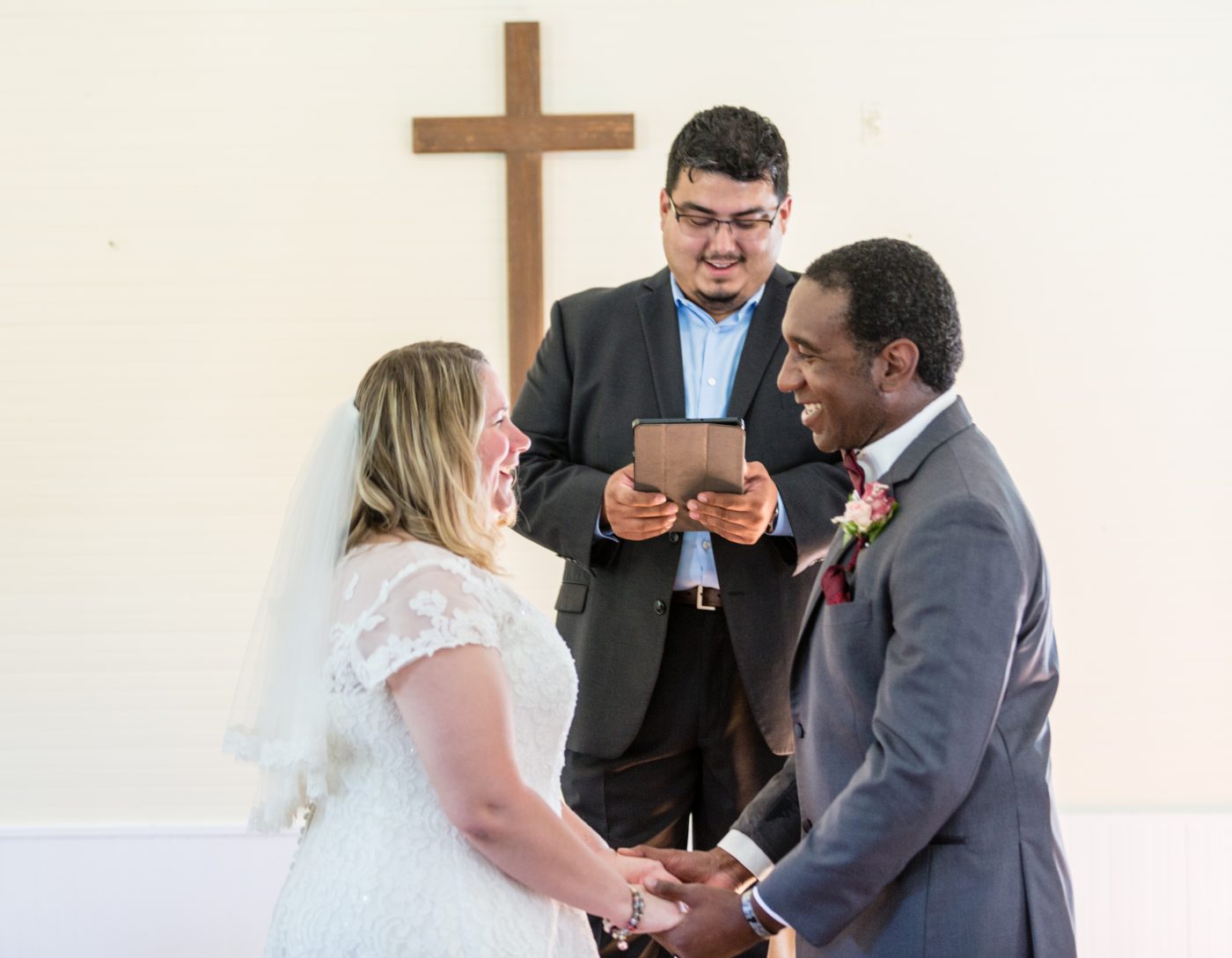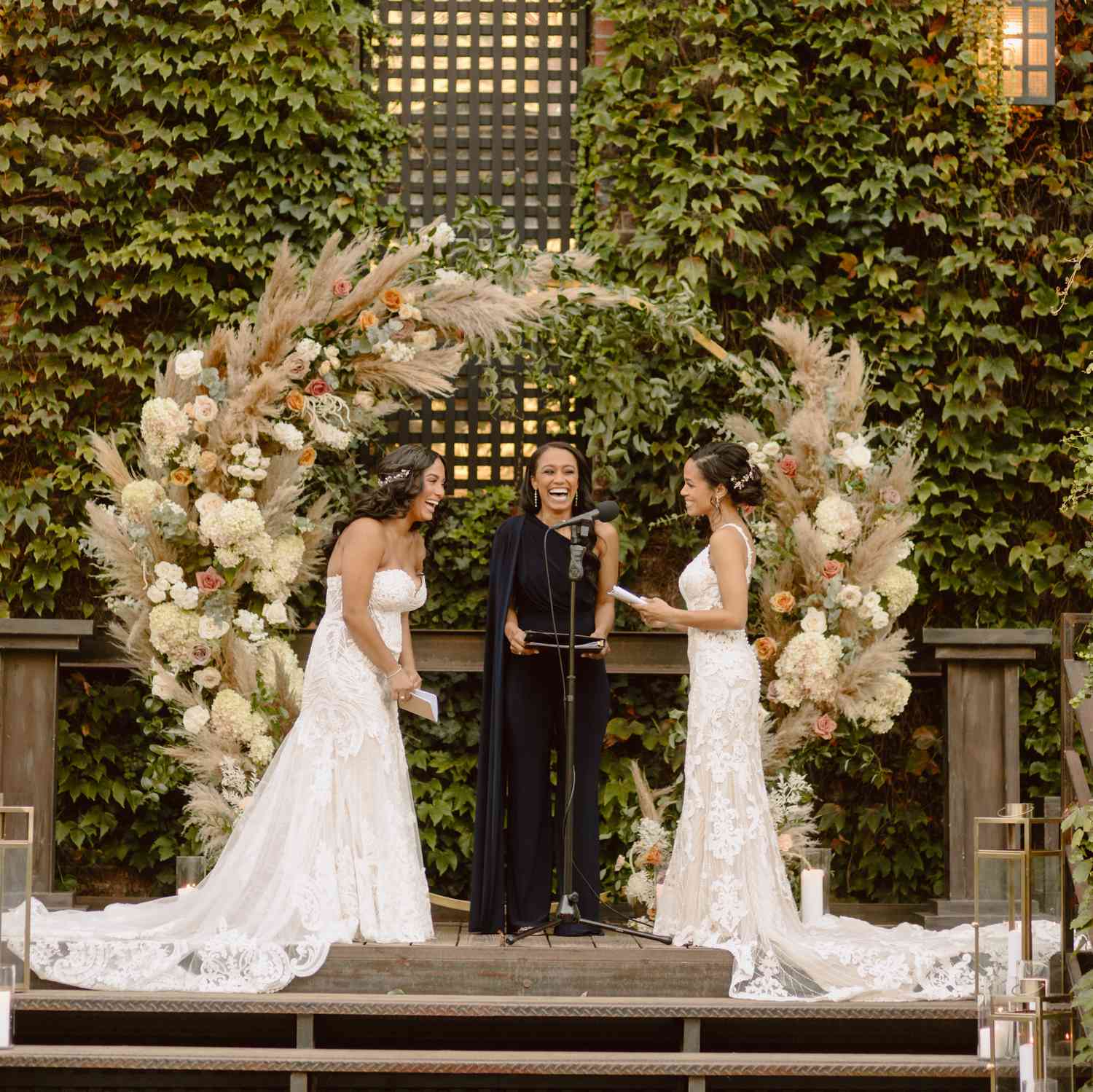I. Introduction
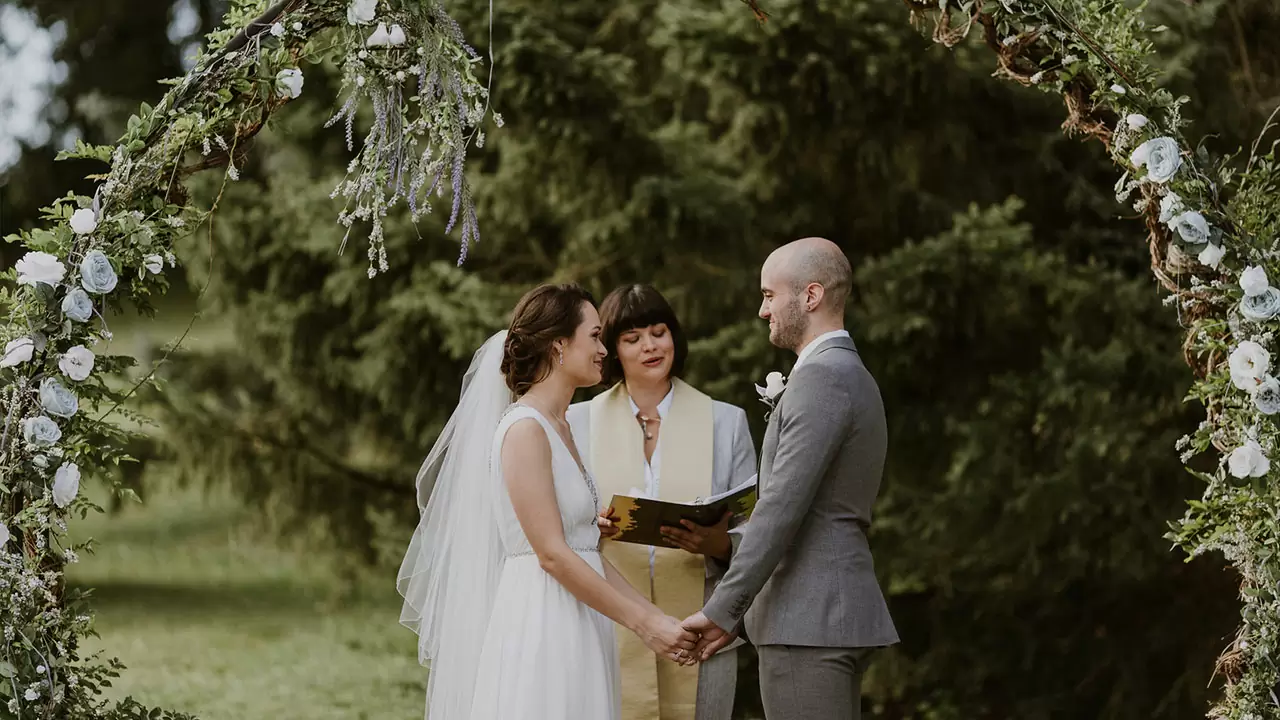
A. The importance of wedding officiants in the ceremony Wedding officiants play a crucial role in solemnizing a marriage and setting the tone for the ceremony. Their expertise and guidance help couples create a meaningful and personalized wedding experience.
B. Understanding the factors that influence wedding officiant costs Determining the costs associated with wedding officiants requires an understanding of the various factors that can influence the pricing structure. These factors include the officiant’s experience, location, travel requirements, and the complexity or customization of the ceremony.
II. Factors that Influence Wedding Officiant Costs
A. Experience and Expertise
- Established wedding officiants with a solid reputation may charge higher fees. Experienced and renowned officiants have built a reputation for their expertise and ability to deliver memorable wedding ceremonies. As a result, they may charge higher fees due to their level of demand and the quality of their services.
- Officiants with specialized knowledge or unique ceremony styles may also command higher rates. If an officiant possesses particular expertise, such as performing interfaith or multicultural ceremonies, they may charge higher fees. Officiants with a unique ceremony style or specializations that meet the couple’s specific needs generally have higher rates.
B. Location and Travel
- Wedding officiant costs vary based on the geographical location of the wedding. The cost of a wedding officiant can vary significantly based on the location of the ceremony. Officiants in metropolitan areas or popular wedding destinations often have higher fees compared to those in rural areas or less sought-after regions.
- If the wedding requires the officiant to travel, additional fees may be incurred. Wedding officiants may charge additional fees if the ceremony location is outside their regular service area or requires significant travel. This covers their time, transportation, and accommodation expenses.
C. Ceremony Complexity and Customization
- Simple, standard ceremonies may have lower officiant fees. For couples seeking a straightforward, traditional wedding ceremony, officiant fees tend to be more affordable. Officiants can conduct these ceremonies efficiently, requiring less preparation and customization.
-
Complex or customized ceremonies, involving added layers of personalization, may cost more. Couples who desire a highly personalized ceremony with unique elements, rituals, or cultural traditions may require more time and effort from the officiant. As a result, officiants may charge higher fees to account for the additional planning, coordination, and rehearsal time involved.
III. Understanding Different Fee Structures
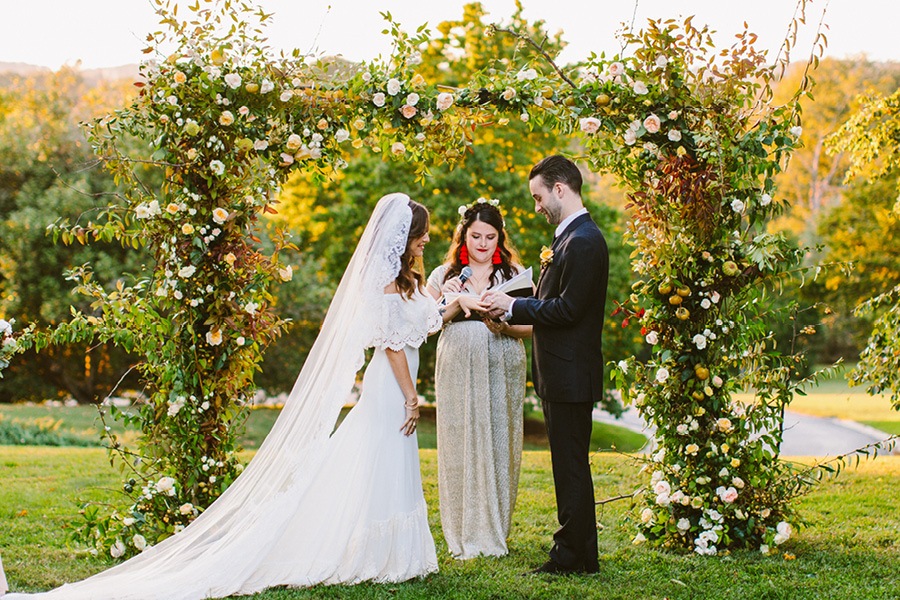
A. Flat Fees
Some wedding officiants charge a flat fee that covers all services and variations in ceremony type. This fee structure provides couples with flexibility in designing their ceremony without incurring additional costs.
- Advantages of flat fees
- Simplifies budgeting: With a flat fee, couples know upfront what the officiant’s services will cost, making it easier to budget for their wedding.
- Flexible ceremony format: The flat fee allows couples to customize their ceremony without worrying about extra charges for additional elements or variations.
- Transparency in pricing: Flat fees eliminate surprises and ensure transparent pricing for both the couple and the officiant.
- Considerations when opting for a flat fee structure
- Ceremony complexity: While a flat fee covers various ceremony types, couples should discuss any complex or highly customized elements with the officiant to ensure they are included in the base fee.
- Extensive rehearsals: If the couple requires multiple rehearsals or extensive coordination, they should clarify if these are covered within the flat fee or if additional charges apply.
B. Hourly Rates
Some wedding officiants charge by the hour, which may be suitable for couples with unique ceremony requirements or those who need specific ceremony components.
- Benefits of hourly rates
- Tailored services: Couples with non-traditional ceremonies, interfaith ceremonies, or cultural rituals may benefit from hourly rates. This structure allows for customized planning and extra time for rehearsal and coordination.
- Cost control: Couples can manage costs by planning their ceremony within a reasonable timeframe. By efficiently utilizing the officiant’s time, they can stay within their budget.
- Considerations with hourly rates
- Time management: Couples should ensure that they plan the ceremony carefully to avoid going significantly over the allocated time, as it could result in additional charges.
- Wedding day logistics: Couples should coordinate the timing of the ceremony with other wedding vendors to optimize the officiant’s hourly rate.
C. Additional Charges
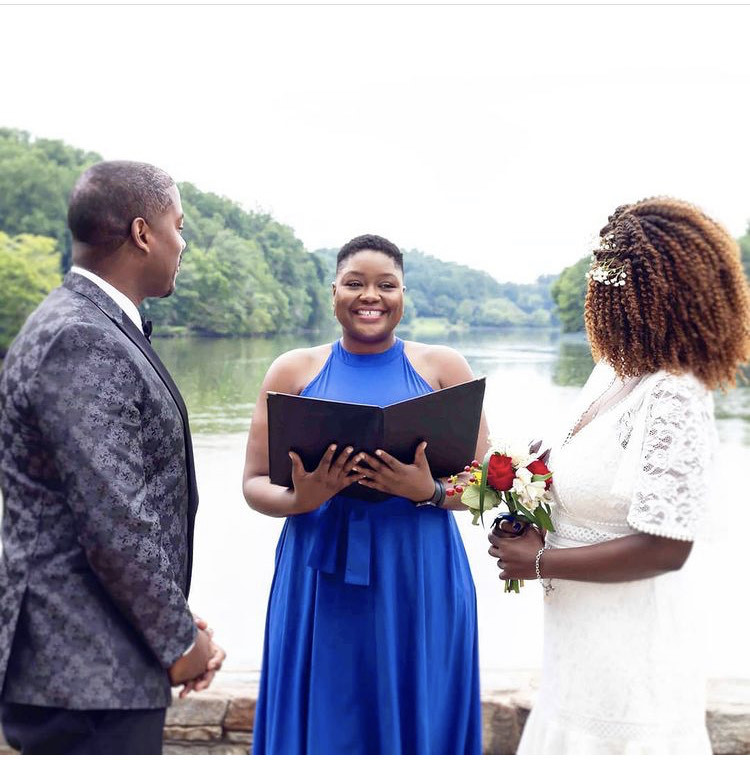
Wedding officiants may charge additional fees for specific services beyond the base fee. Couples should clarify the scope of these services, associated costs, and any potential add-ons upfront.
- Rehearsals:
- Officiants may charge for attending and conducting wedding rehearsals to ensure smooth execution on the big day.
- Couples should discuss the officiant’s availability for rehearsals and confirm the associated fees in advance.
- Personalized vows and scriptwriting:
- If couples wish to have personalized vows or a customized ceremony script, some officiants may charge additional fees to create or modify these elements.
- Couples should communicate their preferences to the officiant and inquire about any costs associated with these services.
IV. Determining Your Budget for a Wedding Officiant
A. Research and Obtain Quotes

To determine your budget for a wedding officiant, conduct thorough research and obtain quotes from multiple officiants.
- Research different wedding officiants and their associated costs:
- Look for officiants in your local area who have good reviews and a track record of performing ceremonies that align with your vision.
- Take note of their pricing structures, such as flat fees or hourly rates, and any additional charges specified.
- Obtain multiple quotes to compare:
- Request quotes from at least three officiants to get a sense of the average rates in your area.
- Compare the services offered, their experience, and their rapport with couples to make an informed decision.
B. Prioritize and Allocate Funds
After gathering quotes, determine how much you are willing to spend on a wedding officiant based on your overall wedding budget.
- Prioritize your expenses:
- Consider the relative importance of each element in your wedding. Allocate a budget that reflects your priorities.
- If the ceremony is a significant aspect for you and deemed of higher importance, allocate a larger portion of your budget to the officiant.
- Allocate funds accordingly:
- Set aside the designated amount from your overall wedding budget specifically for the officiant’s services.
- Ensure that this amount aligns with the quotes you have received and allows for any additional charges that may arise.
V. Conclusion
Understanding the different fee structures for wedding officiants, such as flat fees, hourly rates, and additional charges, allows couples to budget effectively for this important aspect of their wedding ceremony. Conducting thorough research, obtaining quotes from multiple officiants, and prioritizing expenses within the overall wedding budget help couples identify an officiant who suits their needs and aligns with their financial expectations. Ultimately, investing in a skilled and experienced wedding officiant ensures a seamless and memorable ceremony that reflects the couple’s unique love story.
